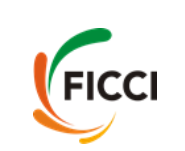The two-day conference ‘FICCI HEAL 2024’ concluded yesterday, focusing on initiatives aimed at transforming India’s healthcare landscape. With the theme ‘Swasth Bharat, Viksit Bharat,’ the event brought together healthcare leaders, policymakers, and innovators dedicated to creating a healthier, more resilient India. Day 2 of the conference featured discussions on advancing primary healthcare, addressing key challenges in women’s cancer care, and fostering interdisciplinary collaboration in healthcare education.
The plenary session, led by (Hony) Brig Dr Arvind Lal, Chair of the FICCI Swasth Bharat Task Force; Executive Chairman, Dr Lal PathLabs; and Managing Trustee, ALVL, highlighted the critical role of primary healthcare in building a strong health system. “Primary healthcare is fundamental to delivering universal healthcare. By scaling up essential diagnostics through a hub-and-spoke model and using a Lab Information Management System (LIMS), we have achieved significant milestones—a 300% increase in test volumes and a 220% rise in patient reach at the CHC Sarojini Nagar hub lab,” Dr Lal noted. He mentioned that more than 70,000 tests have been completed since 2021, and plans are underway to connect more spokes, marking a significant step toward sustainable, high-quality healthcare.
Prominent speakers, including Mr Rajesh Bhushan, Retd., Former Secretary, Ministry of Health and Family Welfare, examined infrastructure challenges and innovative solutions to enhance healthcare access for communities across the nation.
Building trust in the healthcare ecosystem emerged as a pivotal theme. Discussions on healthcare governance emphasized the importance of transparency and ethical practices. Participants addressed current challenges in combating fraud, strengthening regulatory frameworks, and ensuring integrity in healthcare delivery. They stressed the importance of fostering a culture of accountability and ethical practices to bridge trust gaps, which is essential for reinforcing patient rights and improving health outcomes in India.
Mr Partha Sarthi Sen Sharma, Principal Secretary- Health & Family Welfare, Govt of Uttar Pradesh, shared insights on transformative initiatives in the state. “Uttar Pradesh has operationalized over 21,000 Ayushman RRT members to enhance primary healthcare. While progress has been made, challenges such as capacity building, community mobilization, and adapting rural models to urban environments remain. Industry collaboration, particularly through CSR initiatives and self-regulation, along with innovative technologies like tele-diagnostics, will be crucial for future improvements,” he said.
Mr Rajib Kumar, Senior Adviser at NITI Aayog, emphasized the need to shift focus from accessibility to quality improvement. “The strides made in accessibility and affordability are commendable, but enhancing healthcare quality must now be a priority. The private sector can drive innovations in predictive technology and AI to address emerging health challenges. Scalable solutions such as telemedicine and advanced diagnostics are essential for overcoming urban healthcare obstacles. Effective collaboration between state governments and the private sector is necessary for impactful, sustainable solutions,” he stated.
As per the press release, the focus on quality extends to medical education, which serves as the bedrock for training healthcare professionals to maintain high standards of care. Dr Vijay Oza, Acting Chairman of the National Medical Commission (NMC), detailed recent regulatory reforms aimed at strengthening medical education. “The NMC has implemented significant reforms to better prepare medical professionals. By clarifying qualifications, introducing specialized postdoctoral fellowships, and ensuring robust educational standards, we are equipping graduates and postgraduates with the skills required to face future healthcare challenges,” Dr Oza explained.
Dr Suchita Markan, Scientist and Mission In-charge at ICMR, highlighted the role of digital health in advancing patient care. “Innovative digital solutions are essential for enhancing healthcare delivery. Our mission is to connect innovators with growth opportunities and strategic partnerships to foster accessible, high-quality healthcare,” she said.
As India’s leading healthcare forum, FICCI HEAL 2024 reaffirmed its dedication to uniting stakeholders for sustainable reform and innovation, aligned with the vision of ‘Swasth Bharat, Viksit Bharat.’ The conference served as a transformative platform, charting a clear path toward improving the quality of life for all citizens.
























